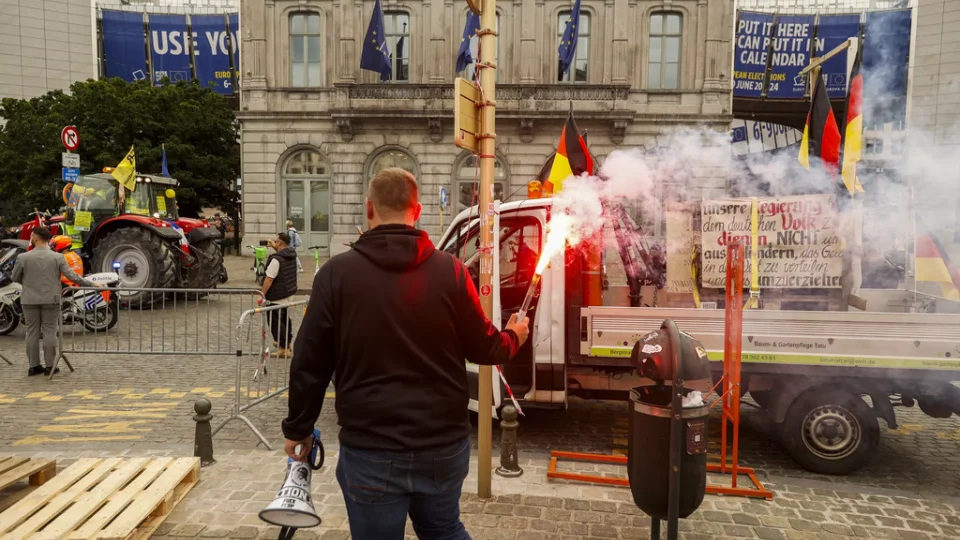Euronews Green delves into how party agendas could sway priorities at the European Parliamentary election.
Recent months have seen a backlash – or ‘greenlash’ – against the European Green Deal, the main policy of the European Commission under President Ursula von der Leyen: the most visible of these being the farming protests that blocked the border between Spain and France.
And with voters heading to the polls this week to vote for a new European Parliament, surveys indicate increased support for politicians who want to weaken these policies, lower climate goals, or ignore environmental actions altogether.
The Euronews Super Polls show that the European Parliament will likely have a strong right-wing majority after the elections on 6-9 June, with green parties expected to lose seats.
Other important issues, such as high energy prices resulting from the war in Ukraine and the unaffordable cost of living, have begun to overshadow environmental policies for both current leaders and voters.
At an event in Paris this April, European Commission Vice-President Maroš Šefčovič declared, “From the recent farmer protests to the rise in support for populism cultivating a resistance to climate policies, we can see signs of wariness among our citizens. So we must continue to cultivate the support of Europeans and European businesses for green policies.”
The growing ‘greenlash’ against Europe’s environmental focus is being fuelled by right-wing and far-right parties across the region, who are attempting to tap into voters’ concerns about the cost of green policies.
Which political parties are fuelling greenlash?
In Spain, one of the EU countries most affected by climate change, the far-right Vox party opposes policies linked to the Green Deal, defining them as “climate fanaticism at the expense of European farmers and ranchers”. They also deny that humans cause climate change and want to undo recent environmental rules.
In Italy, a recent analysis by the Italian Climate Network showed a general absence of climate denial in party manifestos, with instead a tendency to emphasise the dangers and costs of the energy transition, especially by parties such as Lega and Brothers of Italy.
In Germany, the centre-right European People’s Party (EPP) – set to lead in the elections and remain the largest faction in parliament – was criticised by Terry Reintke’s Green party for what they describe as attempts to water down the Green Deal in response to a wave of farmer protests. Reintke pitches her party as the antidote to “right-wing, authoritarian” politics.



